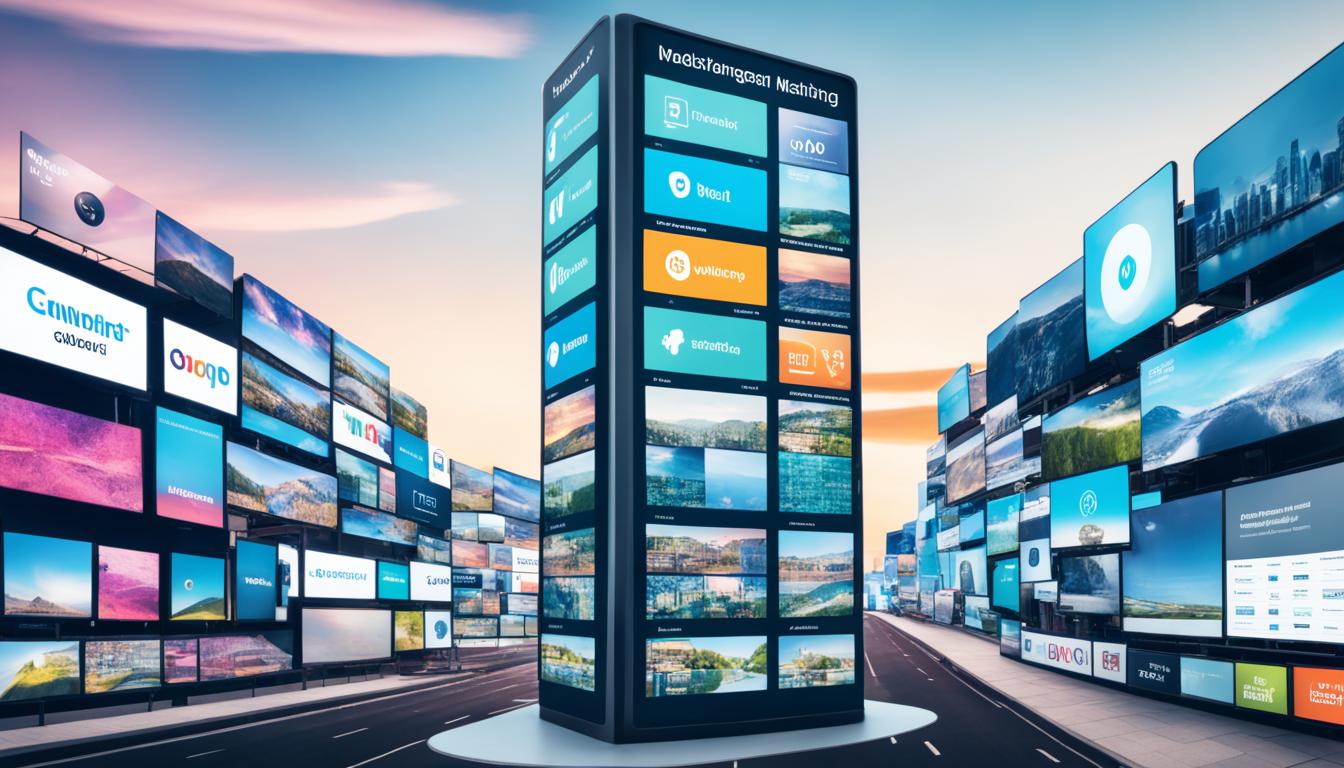Artificial Intelligence (AI) is rapidly transforming the hospitality industry, reshaping marketing strategies in profound ways. AI applications in hospitality marketing enable businesses to enhance guest experiences, optimize operations, and drive revenue through more personalized engagement. As hotels and resorts embrace these technologies, they find new avenues to connect with travelers, streamline their services, and ultimately stand out in a competitive market.
From predictive analytics that identify consumer trends to chatbots that provide real-time customer service, AI offers tools that not only improve efficiency but also foster deeper connections with guests. The integration of AI into marketing strategies allows hotels to deliver tailored promotions and communications, ensuring that each guest receives a customized experience designed to meet their unique preferences.
As AI continues to evolve, so too will its applications within hospitality marketing. It presents exciting possibilities for future innovations that can redefine how businesses engage with customers.
Key Takeaways
- AI enhances guest personalization and operational efficiency in hospitality marketing.
- These technologies significantly improve customer engagement and revenue generation.
- The future of hospitality marketing will be shaped by ongoing innovations in AI applications.
The Rise of AI in Hospitality
The integration of AI in hospitality is rapidly transforming the industry. AI technology enhances customer experiences by enabling personalized marketing strategies and efficient operations.
Hotels utilize AI tools like chatbots for customer inquiries. These systems streamline communication, providing 24/7 support without significant staffing increases.
In marketing, AI development focuses on analyzing guest data. This allows hotels to create tailored offers that resonate with individual preferences. For instance, targeted email campaigns can drive engagement effectively.
The travel and hospitality AI market is expected to expand significantly. Research indicates that hotels adopting AI can reduce operational costs while elevating guest satisfaction.
Real-world use cases demonstrate AI’s impact, such as Hilton’s efforts to minimize food waste. Their analytics tools track waste in real time, optimizing inventory management and reducing costs.
Additionally, Marriott implemented a facial recognition system for check-ins. This not only enhances security but also shortens wait times, showcasing a practical application of AI technology that improves guest experiences.
Overall, the rise of AI in the hospitality sector highlights its potential to reshape marketing strategies and operational efficiency. As AI continues to develop, its influence will likely grow, setting new standards in the industry.
Transforming Guest Experiences with AI
The integration of AI into hospitality marketing significantly enhances guest experiences. By leveraging technology, hotels can offer personalized services, streamline communications, and create intuitive environments. This section explores key AI applications that elevate the guest journey.
Personalized Services
Personalized guest experiences are central to building loyalty and satisfaction. AI tools analyze data from various sources, including previous visits and online interactions, to understand guest preferences.
These insights allow hotels to tailor offerings, such as customized meal options or room settings. Personalized recommendations increase engagement, ensuring guests feel valued. This level of real-time personalization can lead to higher conversion rates and boost overall revenue.
By implementing AI-driven analytics, hotels can provide targeted promotions that resonate with individual guests, enhancing their overall stay.
When considering the introduction of AI-powered chatbots and virtual assistants in hospitality, it’s essential to understand the success criteria for conversational AI agent capabilities. Effective implementation should align with strategic proof-of-concept frameworks, such as those used in conversational AI developed within other sectors. This ensures that these tools enhance guest engagement by allowing more personalized and smooth interactions throughout their stay.
AI-Powered Chatbots and Virtual Assistants
AI-powered chatbots and virtual assistants play a crucial role in transforming guest experiences. They are available 24/7, handling inquiries and bookings efficiently.
These bots can manage requests for information or services without human intervention. For example, a guest can quickly check room availability or request amenities via a chatbot. This reduces wait times and enhances the guest experience.
Moreover, virtual assistants can learn from interactions, improving responses over time. This constant evolution enables a more tailored and spontaneous guest interaction, aligning with modern demands for personalization at scale.
Smart Room Features
Smart room technology represents a significant leap forward in guest comfort and convenience. Features such as climate control, lighting adjustments, and entertainment systems can be controlled via mobile apps or voice commands.
Integrating AI with smart technology allows rooms to adapt to guests’ preferences automatically. For instance, a room can adjust its temperature based on previous stays, creating a customized environment.
These smart features contribute to a more seamless stay, making it easier for guests to connect with their surroundings while enjoying an enhanced experience.
Contactless Check-Ins and Check-Outs
The shift to contactless check-ins and check-outs has transformed the arrival and departure processes. AI facilitates smooth, touch-free transactions that prioritize guest safety and convenience.
Guests can utilize mobile apps to check in remotely, receive room keys digitally, and set up their preferences before arrival. This capability reduces congestion at the front desk, allowing for a more efficient process.
Furthermore, automated check-out options enable guests to leave without queuing, making the overall experience hassle-free. The focus on efficiency through contactless technology aligns with modern travelers’ expectations for speed and convenience.
Enhancing Operational Excellence
Enhancing operational excellence in the hospitality industry involves the integration of smart technology and automation. This approach focuses on improving predictive maintenance and energy efficiency while optimizing staff scheduling and task management.
Predictive Maintenance and Energy Efficiency
Predictive maintenance leverages advanced analytics to foresee equipment failures before they happen. By utilizing sensors and IoT devices, hotels can monitor the condition of critical systems, such as HVAC and plumbing.
This proactive approach not only minimizes downtime but also extends the lifespan of equipment. For instance, if a hotel identifies unusual temperature fluctuations, maintenance can be scheduled before a complete system failure occurs.
Energy efficiency is significantly enhanced through automation. Smart technology allows hotels to manage energy consumption in real time, adjusting lighting and temperature based on occupancy. When guests check out, energy systems can revert to energy-saving modes automatically. This capability not only reduces costs but also supports sustainability initiatives.
Optimized Staff Scheduling and Task Management
Efficient staff scheduling is crucial for maintaining high service levels in hospitality. Using AI-driven tools, hotels can predict busy periods and allocate staff accordingly. This ensures that peak times are adequately staffed, enhancing guest satisfaction.
Task management systems can streamline operations by assigning tasks based on staff availability and skill sets. For example, when a high number of check-ins are anticipated, the system can prioritize front desk staff assignments.
Automation further simplifies scheduling, allowing for seamless adjustments in real time. If a staff member calls in sick, the system can quickly find a replacement based on availability and skill levels, minimizing service disruptions. This data-driven approach ensures operational efficiency and improves overall guest experiences.
Driving Revenue through AI-Enabled Marketing
AI-enabled marketing significantly enhances revenue streams in the hospitality industry. Through effective data management and personalization, hotels can strategically position themselves to attract and retain customers.
Data-Driven Customer Insights
Data collection plays a crucial role in understanding customer preferences and behaviors. AI systems analyze vast amounts of data to provide actionable insights. This includes demographic information, booking patterns, and feedback.
With these insights, marketers can identify trends and segments most likely to convert. The result is more informed marketing strategies that focus on the right audience at the right time.
Additionally, AI can track customer interactions across multiple channels, helping businesses refine their approach. These data-driven techniques lead to improved targeting and higher engagement rates.
Tailoring Marketing with AI
AI-driven marketing enables hotels to create personalized experiences tailored to individual guests. By leveraging customer insights, they can deliver relevant content, offers, and recommendations.
For instance, AI can suggest upselling and cross-selling opportunities based on past purchases. This approach enhances guest satisfaction and drives additional revenue.
Personalized email campaigns also benefit from AI, improving open and conversion rates. By addressing unique customer needs, hotels can build loyalty and repeat business.
Dynamic Pricing and Revenue Management
Dynamic pricing strategies are essential for optimizing revenue in the hospitality sector. AI facilitates real-time adjustments based on market demand, competitor pricing, and booking trends.
Hotels can implement optimized pricing that adapts to fluctuations in occupancy and market conditions. This flexibility maximizes revenue opportunities while remaining competitive.
Additionally, AI analytics help identify the best times for promotions or special offers. It empowers revenue management teams to make data-driven decisions to enhance overall profitability.
Maximizing Customer Service and Engagement
Artificial Intelligence (AI) offers transformative solutions to enhance customer service and engagement in the hospitality sector. By leveraging real-time feedback mechanisms and AI-driven chatbots, businesses can significantly improve guest satisfaction and streamline customer support processes.
Real-Time Feedback and Sentiment Analysis
AI-driven tools enable hotels to collect and analyze guest feedback in real-time. This immediate data helps identify areas for improvement and enhances customer engagement.
- Sentiment analysis algorithms process online reviews and social media comments, extracting valuable insights about guest experiences.
- By monitoring sentiment trends, hoteliers can proactively address concerns before they escalate, leading to improved guest satisfaction.
Utilizing platforms that aggregate feedback allows for better understanding and response to guest needs. This method also supports targeted marketing efforts by aligning services with guest preferences, effectively establishing a more personalized service experience.
Enhancing Guest Services with AI Chatbots
AI chatbots have become essential in modern hospitality marketing, providing round-the-clock customer support. These virtual assistants can answer common inquiries, assisting guests with booking modifications and service requests promptly.
- 24/7 availability ensures that guests receive timely responses, which is critical for maintaining high customer service standards.
- Chatbots can analyze guest interactions, learning from patterns to provide increasingly personalized services over time.
By automating routine inquiries, hotel staff can focus on more complex issues, enhancing the overall efficiency of customer service. This technology not only improves response times but also contributes to a seamless guest experience, fostering higher engagement and satisfaction levels.
Security and Privacy in AI Deployments
In the context of hospitality marketing, the integration of AI technologies raises significant considerations regarding data security and guest privacy. Protecting sensitive information is crucial as hotels increasingly rely on AI solutions to enhance customer experiences and streamline operations.
Data Security and Guest Privacy
Data security is paramount when deploying AI systems in hospitality. Protecting guest information involves implementing robust security measures to prevent unauthorized access and data breaches.
Key security protocols include:
Encryption: All sensitive data should be encrypted both in transit and at rest. This minimizes the risk of data exposure.
Access Controls: Organizations must ensure that only authorized personnel have access to personal data. Using role-based access control can assist greatly.
Regular Audits: Conducting frequent security audits helps identify vulnerabilities and reinforces compliance with regulations such as GDPR and CCPA.
Moreover, guest privacy must be a top priority. AI systems should be designed to collect minimal personal data necessary for service enhancement. Transparency in data usage builds trust, allowing guests to feel secure in sharing their information.
AI and Ethical Considerations
Ethical considerations play a vital role in the deployment of AI in hospitality. Organizations must acknowledge their responsibility to handle data ethically and transparently.
Essential aspects include:
Informed Consent: Guests should always be informed about how their data will be used, ensuring they provide explicit consent before data collection.
Bias Mitigation: AI algorithms must be routinely evaluated to avoid bias, which can lead to unfair treatment of guests based on age, race, or other characteristics.
Data Retention Policies: Establishing clear data retention policies ensures that personal information is not kept longer than necessary, reducing the risk of misuse.
Ethical AI development services can support hotels in navigating these challenges, fostering an environment of accountability and integrity in guest interactions.
The Future of Hospitality with Generative AI
Generative AI is poised to transform the hospitality industry by enhancing guest experiences and streamlining operations.
Personalization will reach new heights, allowing hotels to tailor services based on individual preferences. By analyzing vast amounts of data, hotels can offer customized itineraries, room settings, and dining experiences.
The integration of virtual and augmented reality with generative AI will enable virtual tours that enhance customer engagement. This technology can provide guests with immersive experiences before they arrive.
Predictive analytics will play a crucial role in anticipating guest needs. Generative AI systems can analyze past behaviors and preferences, helping businesses recommend suitable services. This capability enhances the guest experience and increases operational efficiency.
Marketing strategies will develop through AI-driven insights. Hotels can create targeted campaigns based on data analysis, enabling more effective communication with potential guests.
Operational efficiency will also improve. Generative AI can automate routine tasks, allowing staff to focus on providing excellent customer service. These efficiencies can lead to cost savings and improved service quality.
Embracing AI development in the hospitality sector is essential for staying competitive. As technology evolves, those who leverage generative AI will be better positioned to meet the changing demands of consumers.
Challenges and Best Practices for Implementing AI
Implementing AI in hospitality marketing involves navigating several challenges while employing strategic best practices. Understanding these obstacles and methods ensures seamless integration and maximizes the value derived from AI technologies.
Overcoming Technical and Adoption Challenges
One significant challenge in adopting AI is the quality and availability of data. Many organizations struggle with insufficient data for AI-driven analytics, hindering the effectiveness of their models. This can lead to poor decision-making and missed opportunities.
Another hurdle is the integration of AI systems with existing workflows. Companies often face compatibility issues when trying to incorporate new technologies without disrupting established processes. Proper assessment of current infrastructure and selecting compatible AI tools is crucial.
Lastly, resistance from employees can impede adoption. Training staff and communicating the benefits of AI-driven solutions, such as improved customer experiences and operational efficiency, can help mitigate this issue.
Strategies for Effective AI Integration
Successful AI integration in hospitality requires well-defined strategies. A foundational step is to focus on data quality. Ensuring that high-quality data is available for AI training can enhance accuracy and lead to better insights. This may involve cleaning existing data or sourcing additional datasets.
Creating a cross-functional team dedicated to AI initiatives can foster collaboration across departments. Involving diverse perspectives can enhance problem-solving and innovation.
Utilizing AI for specific tasks, such as content creation or waste reduction, can also drive success. For example, AI can generate personalized marketing content based on customer preferences or optimize resource usage in hotel operations.
Staying informed about the latest AI trends and continuously evaluating performance can further enhance implementation efforts, ensuring the organization remains agile and effective in its AI-driven marketing strategies.
Frequently Asked Questions
This section addresses key questions regarding the use of AI in hospitality marketing. It explores current trends, personalization techniques, practical applications, and the impacts of AI on operational efficiency and competitive advantage within the industry.
What are the current trends in AI for enhancing guest experiences in hotels?
Current trends highlight the integration of AI-driven chatbots and virtual assistants to provide 24/7 customer support. Additionally, hotels are implementing AI-powered systems for seamless check-in and personalized guest interactions. This technology enables real-time feedback collection to improve services.
How is AI being used to personalize marketing in the hospitality sector?
AI analyzes customer data to tailor marketing efforts to individual preferences. Through machine learning algorithms, hotels can identify patterns in booking behavior, allowing for targeted promotions. This increases engagement rates and enhances the overall customer experience.
What are some practical examples of AI-driven customer service in the hospitality industry?
AI-driven customer service examples include chatbots that handle inquiries about bookings or amenities. Additionally, hotels like Hilton have utilized concierge robots for guest assistance, providing information on local attractions and services. This helps streamline operations and improves customer satisfaction.
How are hotels leveraging AI for operational efficiency and marketing?
Hotels leverage AI to optimize pricing strategies and manage inventory effectively. Predictive analytics enable them to forecast demand accurately, allowing for dynamic pricing adjustments. This approach enhances revenue management while minimizing operational costs.
In what ways does AI contribute to competitive advantage in the hospitality market?
AI provides a competitive advantage by enabling hotels to improve customer engagement through personalized experiences. It also enhances operational efficiency, allowing for better resource allocation and cost reduction. Early adopters of AI technologies can differentiate themselves in a competitive marketplace.
What does the future hold for AI applications in hospitality marketing strategies?
The future of AI in hospitality marketing points towards further advancements in predictive analytics and real-time personalization. As AI technology evolves, hotels will likely implement more sophisticated tools that enhance guest interactions. This may include deeper integration of augmented reality and machine learning to create unique, immersive experiences.




